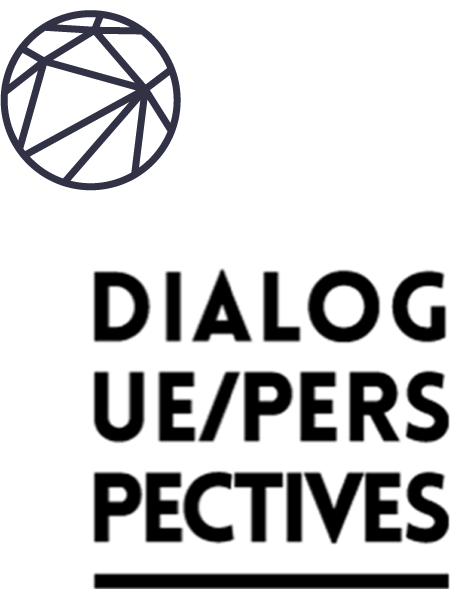What we celebrate and why: Reflections on Ramadan 2020
The Covid-19 pandemic has turned our lives upside down. How we live, work, love, practice our faiths – much has changed. The virus has made some problems visible for the first time, while we now see some topics from a different perspective. Here, you can read contributions from our current and former participants telling the story of their lives in times of corona. Stories of upheaval, of new insights, and serene realizations. Have a read!
Today we are happy to share Azra‘s reflections on what practicing Ramadan means for her. Azra is one of this year’s participants of our European Scholarship Programme@Dialogueperspectives. Thank you, Azra for sharing this beautiful text with us!
Not even water…
It is around 3 am in Sweden, the sun hasn’t risen yet. In the picture, you see my Suhoor plate. Two pieces of bread, tomatoes, watermelon, and white cheese (for me these two are perfect complements) and 7 olives. Yes, I count the olives. It may sound weird but as a child, I read somewhere that Prophet Mohammad (may peace be upon him) ate odd numbers of olives then I started to do so as well. A Suhoor without drinks is unthinkable. I have 18 hours of fasting in front of me, so I need lots of fluids. Water is important, both health-wise and also for having a comfortable day later on. I prefer to drink mineral water if there is any at home. I just have a feeling that it is more helpful for not becoming thirsty during the day. Briefly, Sahoor is more or less like breakfast but much earlier version of it.
When the sun finally rises, the fast starts. From now on till sundown, all types of ingestion, inclusive medicine and water, and sexual relations are forbidden. But what happens if you forgot you were fasting and took a sip of water? Don’t worry, this is interpreted as a gift from God, so you continue to fast as normal. You break your fast when the sun goes down, it is around 9.20 in Sweden and thereafter till sunrise, you are free to do what you are normally allowed to do. A Muslim is obligated to practice Ramadan when the person reaches puberty. Menstruating, nursing and pregnant women and people with health issues are exempt from fasting. But whenever the circumstances allow, they should compromise the days they haven’t been fasting during Ramadan. During Ramadan, reading the Quran and making readings about Quran is valued more than usual since Ramadan is the lunar month in which the Quran was revealed.
Fasting can be interpreted differently. I see it as act of respect for The Owner of Everything. If he doesn’t allow me to utilize his goods, so I don`t. And Iftar is an invitation for dinner from him to me and by breaking my fast I accept this worthful invitation.
Except for Ramadans in my childhood, there are two days that I won´t easily forget. The first one was in Oslo when I broke my fast at 10.50 pm and started fasting again at 02.15 am. This was my longest fast, almost 21 hours. The other one was in Las Vegas when the weather was over 40 degrees. It was cooking. After such experiences, I am quite comfortable with the current circumstances.
Traditionally, Ramadan is a collectively practiced service. You wake up to Suhoor with your family, you invite people for Iftar or be invited by friends or relatives. Of course, we are not able to do so now, this is for our best. It is bitter to not be able to share our meal with others and gather around the table for iftar with my cousins and friends. Being together in Ramadan brings happiness, motivation, and strength. But for the common good, we need to act as required by the health authorities. It is being a special Ramadan, but it is still joyful. I think people like us, who live aboard from their home country, are already well experienced in having long-distance connections with family and friends. On the other hand, I have got more time to focus on different things such as my spiritual life, now when I’m partly isolated. I spend time together with my family. It is actually not a big deal for us, who are privileged with a peaceful home, to stay isolated. My heart goes out to all those who are suffering from the virus and have been subjected to physical and psychological violence at home during this period. Ramadan Kareem.

